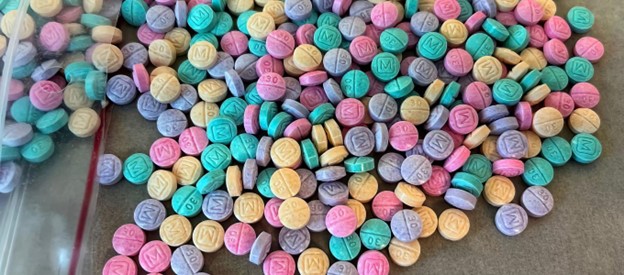(Updated 2025 November)
 Overdoses can happen in unexpected situations – a social gathering, a school event, with a friend or family member, or other community event. Sadly, drug overdoses are a leading cause of unintentional death among children in the United States according to the American Academy of Pediatrics.
Overdoses can happen in unexpected situations – a social gathering, a school event, with a friend or family member, or other community event. Sadly, drug overdoses are a leading cause of unintentional death among children in the United States according to the American Academy of Pediatrics.
The major force behind many overdoses is prescription and non-prescription opioid drugs, particularly fentanyl. Fentanyl is the primary opioid responsible for fatal and nonfatal overdoses in the Fairfax Health District.
You may not know that someone is at risk of overdose or at risk of exposing you and your loved ones to fentanyl or other opioids. Stigma prevents many who use drugs from telling others. This hidden danger is impacting families across Fairfax County as opioid overdoses increase each year. If someone in your life or household is using drugs, your children could be in danger of accidentally ingesting the substance. Even the powdery residue left on surfaces can be harmful if it is ingested. Being mindful of substances in your household could save a child's life.
Information and awareness are the best ways to protect yourself and your loved ones from unintentional overdose.


 Pills that look “normal” can still have deadly fentanyl in them. It’s undetectable by sight, smell, or taste.
Pills that look “normal” can still have deadly fentanyl in them. It’s undetectable by sight, smell, or taste.  Fentanyl is deadly even in small doses. It can slow the body's heart and breathing rate to the point of stopping completely. Be alert to the signs of an overdose:
Fentanyl is deadly even in small doses. It can slow the body's heart and breathing rate to the point of stopping completely. Be alert to the signs of an overdose:  Children and teenagers are vulnerable to opioid overdoses. Fentanyl-involved deaths are
Children and teenagers are vulnerable to opioid overdoses. Fentanyl-involved deaths are